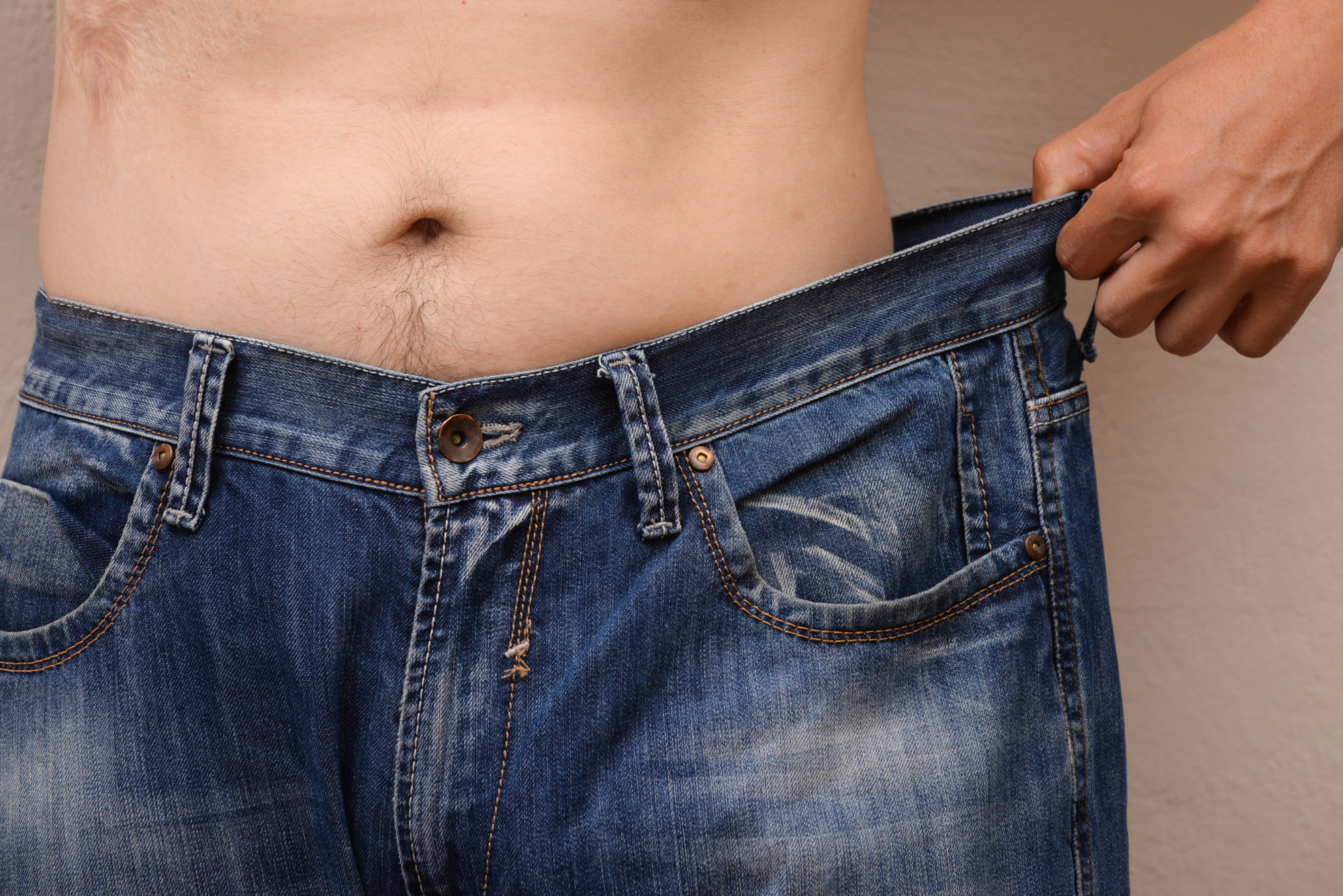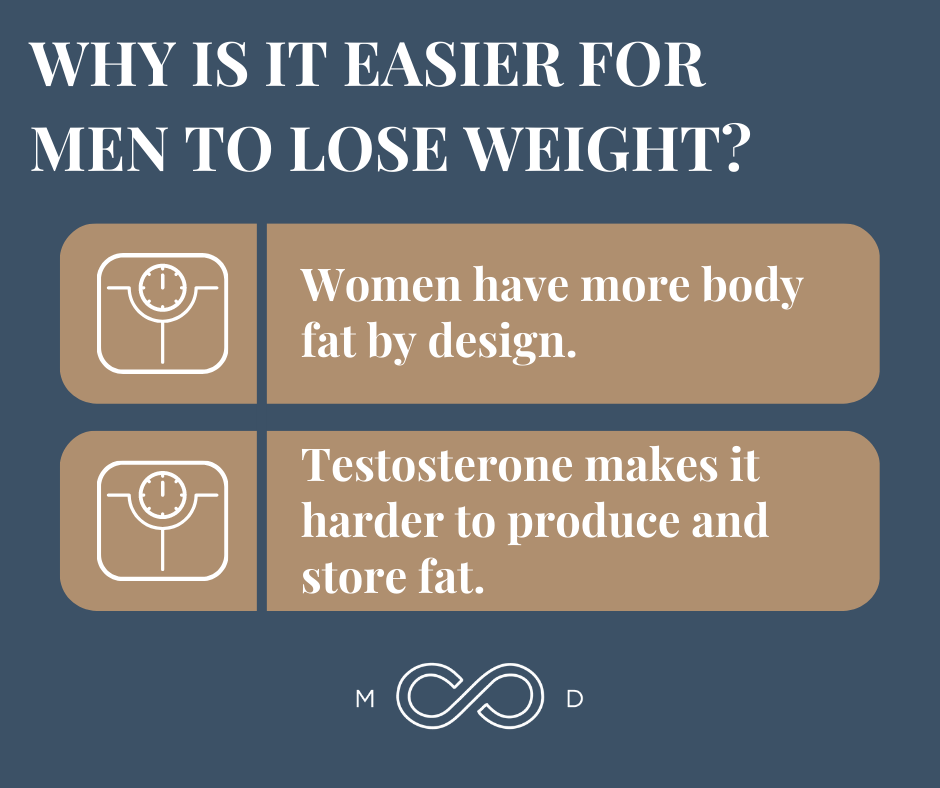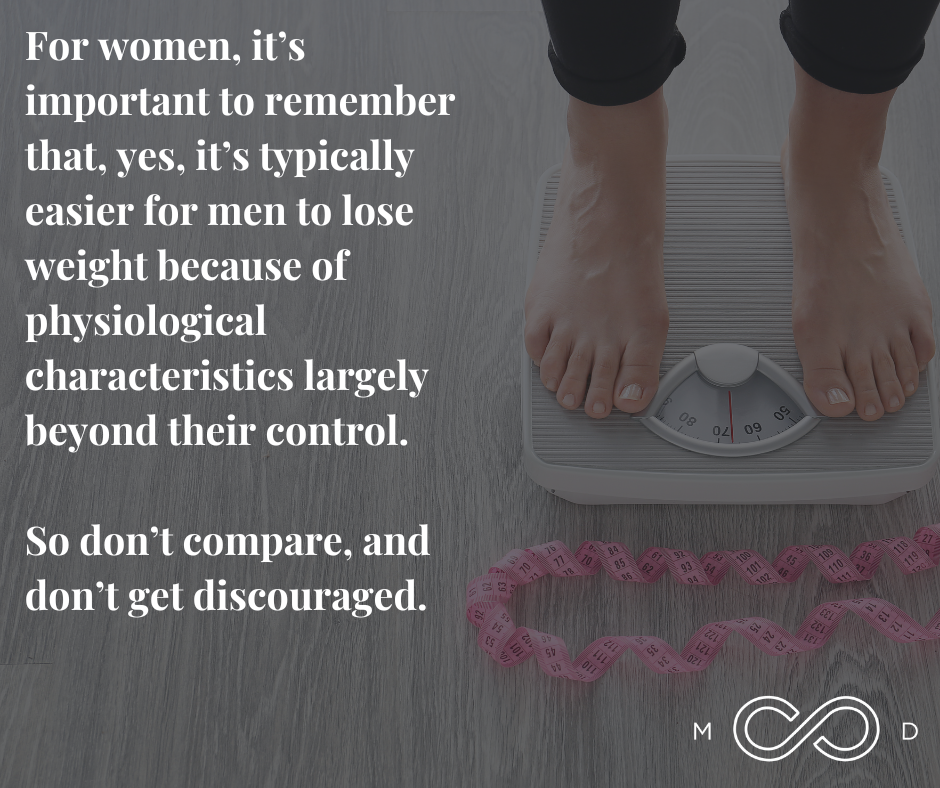It’s no secret that losing weight can be a challenge. But do some people inherently have an upper hand? Let’s answer an age-old question: Is it easier for men to lose weight?
We have to answer honestly here. Often, yes, it is. But why? And what can we do about it?
Hormonal Factors
There are two primary drivers of the weight loss story between men and women:
1. Women have more body fat by design.
On average, women carry about 10% more body fat than men, much of which is driven by hormones. Pre-pubescent boys and girls are physically identical aside from differences in their genitalia.
It’s when a woman goes through puberty, producing increased levels of estrogen and progesterone, that her body is signaled to increase fat creation and deposition to the hips and breasts.
This means that a woman’s higher body fat percentage is actually biologically by design. Women have more fat per pound on their body than men, assuming all other hormones and physiology are the same.
2. Testosterone makes it harder to produce and store fat.
Conversely, males begin producing very high levels of testosterone from their testes during puberty. This bath of testosterone stimulates bone growth, ligament and tendon grow, and skeletal muscle growth, which is why men tend to be large and more muscular than women on average.
Non-Hormonal Factors
Your basal metabolic rate is the amount of energy your body consumes to perform basic functions like breathing and keeping your heart beating. Studies have shown a direct correlation between increased skeletal muscle mass and a higher basal metabolic rate.
In other words, because men inherently tend to have more skeletal muscle than women due to those elevated testosterone levels, their bodies tend to consume more energy just from existing.
These two factors — hormones and basal metabolic rate — lie at the root of why it’s often easier for men to lose weight. And these neurohormonal pathways are reinforced over time. As the years and decades go by, half of people become increasingly anchored to creating and depositing fat, and the other half keep burning it with skeletal muscle.
That said, these patterns aren’t absolute, and both men and women can overcome their predispositions, whether positively or negatively. There are very lean and muscular women, just like there are men with very high body fat and little skeletal muscle.
All other things being equal, however, these basic biological factors are why it’s generally easier for men to lose weight.
Clearly, this doesn’t mean women can’t lose weight. It just means there’s a baseline disadvantage present that has to be managed. They’ll have to work harder to achieve similar weight loss to their male counterparts, or they may not lose as much.
Is it fair? No. But knowing the disparity exists can help you accommodate and overcome it.
Is It Easier for Men to Lose Weight: Final Thoughts
Weight loss is a complex issue because of the deep-rooted psychological and social pressures around what a healthy weight looks like.
For women, it’s important to remember that, yes, it’s typically easier for men to lose weight because of physiological characteristics largely beyond their control. So don’t compare, and don’t get discouraged. Instead, talk to your doctor about weight loss strategies and what might work best for you and your unique physiology.
Reliable Resources:
- Do Men Really Lose Weight More Easily Than Women?
- Weight Loss and Gender: Do Men Lose Weight Faster?
- Effectiveness of Weight Loss Interventions – Is There a Difference Between Men and Women: A Systematic Review

Dr. Aaron Wenzel is a concierge physician specializing in the care of fast-moving entrepreneurs, executives, and public figures in the Nashville, TN area. Dr. Wenzel’s diverse life experience and extensive training in family medicine, emergency care, nutrition, and hormone replacement therapies give him the unique platform to provide unmatched care for his patients.









